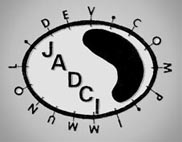The 30th annual meeting of the Japanese Association for Developmental and Comparative Immunology (JADCI) was held on August 20-22, 2018, at College of Bioresource Sciences, Nihon University, in Fujisawa. Sixty-five scientists including graduate and undergraduate students attended this meeting to discuss the host defense mechanisms of invertebrates and vertebrates. The meeting featured three educational lectures, a special lecture and a symposium. Additionally, there were 25 general oral presentations, followed by the active discussion.
Educational lecture 1: Prof. Katsumi Maenaka (Faculty of Pharmaceutical Sciences, Hokkaido University) Molecular recognition of Immune cell surface receptors toward various ligands.
Educational lecture 2: Prof. Ikuo Hirono (Tokyo University of Marine Science and Technology) Study on penaeid shrimp immunity.
Educational lecture 3: Prof. Masahiro Sakai (Faculty of Agriculture, University of Miyazaki) Fish Cytokine.
Special lecture: Prof. Masanori Kasahara (Faculty of Medicine and Graduate School of Medicine, Hokkaido University). Origin and evolution of the adaptive immune system.
Prof. Kasahara reviewed two topics in his work. One is an origin and evolution of immune-related molecules locating at the major histocompatibility complex (MHC) genomic region throughout vertebrate evolution. The other is the adaptive immune system of jawless fish, in which have three lymphocyte lineages expressing each three variable lymphocyte receptors (VLRA, VLRB and VLRC) similar to αβT cells, B cells and γδT cells in jawed vertebrates.
Symposium: "Immune cells and their origin"
SI1. Regulation of hematopoietic stem cell fate in the hypoxic bone marrow niche. (Dr. Keiyo Takubo, Department of Stem Cell Biology, National Center for Global Health and Medicine Research Institute)
SI2. Group 2 innate lymphoid cells and evolution theory. (Dr. Kazuyo Moro, Laboratory for Innate Immune Systems, RIKEN IMS)
SI3. Functions of a dendritic cell subset, expressing a chemokine receptor XCR1. (Dr. Hiroaki Hemmi, Department of Immunology, Wakayama Medical University)
General presentations:
Twenty five oral presentations involved in the host defenses of echinoderms, arthropods, fish, birds and mammals were made over the 2 days.
The winner of the Award of the ' Furuta Excellent Scientific Papers' was Dr. Tomoyuki Odaka at Fukui Prefectural University. (Teleost basophils have IgM-dependent and dual Ig-independent degranulation systems. doi.org/10.4049/jimmunol.1701051)
The winner of the ‘Furuta Young Investigator Award’ was Dr. Fumio Takizawa at Fukui Prefectural University/ University of Pennsylvania. He was awarded this prize for his work entitled ‘An essential role of IgT in pathogen control and commensal homeostasis in mucosal surfaces’



